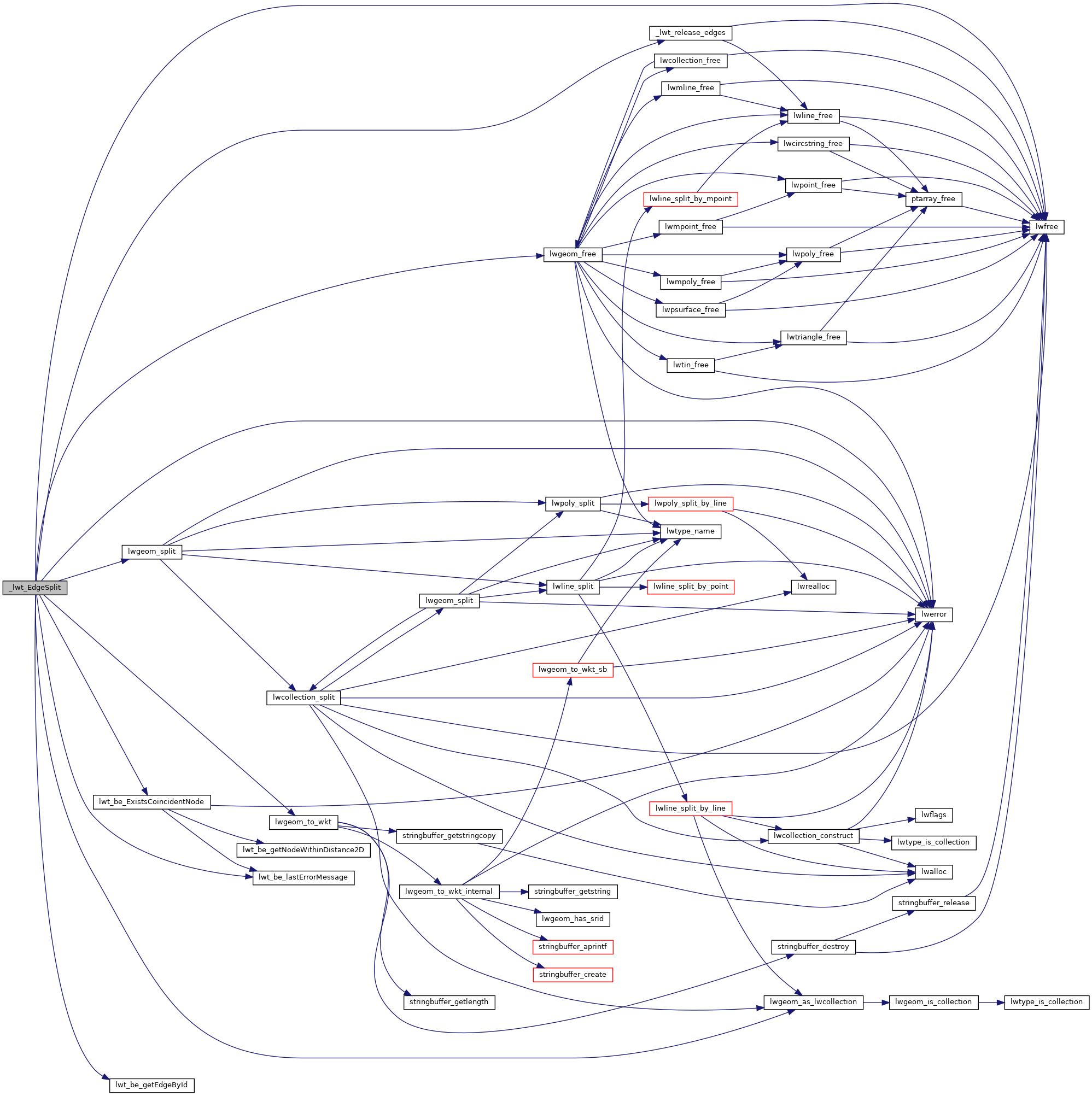◆ _lwt_EdgeSplit()
|
static |
Definition at line 973 of file lwgeom_topo.c.
LWGEOM * lwgeom_split(const LWGEOM *lwgeom_in, const LWGEOM *blade_in)
Definition: lwgeom_geos_split.c:569
char * lwgeom_to_wkt(const LWGEOM *geom, uint8_t variant, int precision, size_t *size_out)
WKT emitter function.
Definition: lwout_wkt.c:704
LWCOLLECTION * lwgeom_as_lwcollection(const LWGEOM *lwgeom)
Definition: lwgeom.c:216
const char * lwt_be_lastErrorMessage(const LWT_BE_IFACE *be)
Definition: lwgeom_topo.c:119
LWT_ISO_EDGE * lwt_be_getEdgeById(LWT_TOPOLOGY *topo, const LWT_ELEMID *ids, uint64_t *numelems, int fields)
Definition: lwgeom_topo.c:220
int lwt_be_ExistsCoincidentNode(LWT_TOPOLOGY *topo, LWPOINT *pt)
Definition: lwgeom_topo.c:384
static void _lwt_release_edges(LWT_ISO_EDGE *edges, int num_edges)
Definition: lwgeom_topo.c:459
Definition: liblwgeom.h:587
Definition: liblwgeom.h:471
References _lwt_release_edges(), LWT_TOPOLOGY_T::be_iface, LWDEBUG, LWDEBUGF, lwerror(), lwfree(), lwgeom_as_lwcollection(), lwgeom_free(), lwgeom_split(), lwgeom_to_wkt(), lwt_be_ExistsCoincidentNode(), lwt_be_getEdgeById(), lwt_be_lastErrorMessage(), LWT_COL_EDGE_ALL, LWCOLLECTION::ngeoms, and WKT_EXTENDED.
Referenced by lwt_ModEdgeSplit(), and lwt_NewEdgesSplit().
Here is the call graph for this function:

Here is the caller graph for this function:
